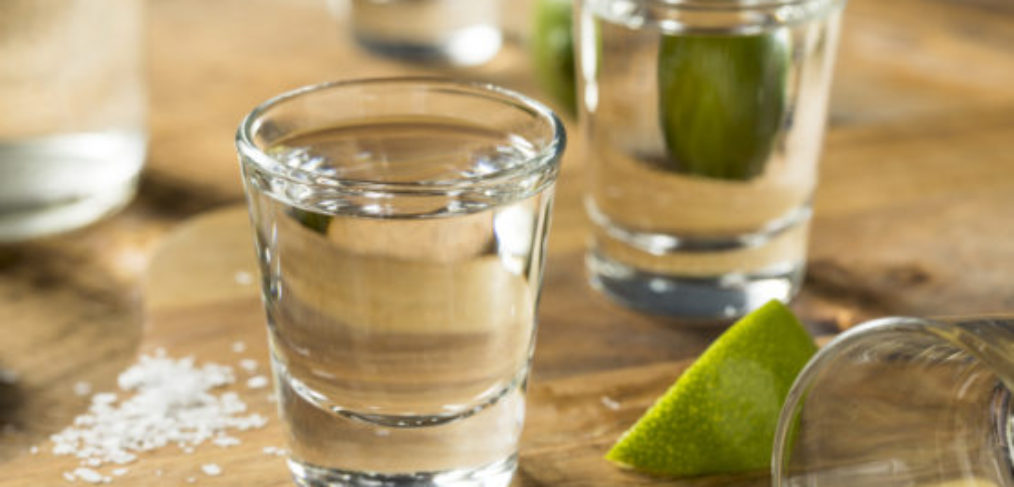Mezcal: The “Newest” Old Drink

If you’re someone who opts to follow a Paleo diet and you’d like a drink, chances are fairly good that you’re going with a tequila, as it’s always grain-free.
Alternatively, for someone who’s more in line to follow a general ‘clean eating’ approach, choosing a neat vodka for its low sugar content may be what you’re accustomed to.
Broadly speaking, simply sticking with any neat, clear spirit is always going to be the safer bet than a sugary cocktail and for some, even more so than wine, which contributes more sugar and can negatively impact gut health (1) by feeding any bacteria that live there with their preferred food choice.
And while a neat, grain-free vodka, tequila or gin are all viable options, there’s one more worth considering.
It’s something that’s trending now, but it’s nothing new by any stretch of the imagination: mezcal.
Often, mezcal is confused with tequila, and while it is indeed also made from agave, it’s not the same thing.
Some points of interest:
- Tequila is a type of mezcal, much like how scotch and bourbon are types of whiskey; mezcal is defined as any agave-based liquor.
- Mezcal can be made from more than 30 varieties of agave, the most common of which are tobalá, tobaziche, tepeztate, arroqueño and espadín, which is the most common agave and accounts for up to 90% of mezcal.
- Mezcal is produced in nine different areas of Mexico, including include Durango, Guanajuato, Guerrero, San Luis Potosi, Tamaulipas, Zacatecas, Michoacán, Puebla and Oaxaca, which is where upwards of 85 percent of all mezcal is made.
- The main difference is in the production: tequila is made by steaming the agave inside industrial ovens before being distilled two or three times in copper pots, while Mezcal is traditionally cooked inside earthen pits, lined with lava rocks and filled with wood and charcoal before being distilled in clay pots, which is the source of the smokiness commonly associated with mezcal (2).
So what’s the big fuss?
It’s all about the production, which not only supports the farm to table movement on a broad scale, as the artisans who are crafting this beautiful drink are doing so in the traditions passed down through their families for generations (3), but also illustrates a part of the texture of a culture’s traditional cuisine and corresponding ritual.
It’s tradition and is even referred to as ‘the holy elixir’ in parts of Mexico. Both men and women drink mezcal in ceremonies and social activities: in baptisms, weddings and funerals; to bless the cornfield both during planting and harvest; when falling in love or falling out of love. They drink to find the courage or to swallow betrayal. They toast to good health and have a sip when they’re feeling sick. Mezcal is drunk in sorrow and in joy, in poverty and in wealth, in heaven or when in “hell” (4).
Artisanal Mezcal isn’t made with the goal of mass market, mass production at the cost of the precious agave from whence it comes.
Agave is a unique and limited species, and given the respect demonstrated by those who curate it, annihilating it to produce as much as possible at any cost would be the antithesis of what the plant, the drink and the ritual is all about.
It’s actually quite akin to respecting the pasture-fed animals we source locally and use from nose to tail when making bone broth and buying produce which only grows in season, locally.
From a health standpoint, mezcal is a great option as well; since mezcal is made from 100% distilled agave it is all-natural and additive-free. (It’s worth noting that tequila is also made from agave, but it only needs to be 51% agave in order to be sold as tequila in the US (4).
It may also helps with digestion, as well as the regulation of blood sugars and is also naturally gluten-free.
I was first introduced to this beautiful beverage a few years back in Tulum.
Whether it was the relaxed nature of the environment, the incredible yoga scene or the mezcal all on its own, I fell in love with it right then and there.
If you haven’t yet partaken, it’s a must and in my opinion, the very best option of a neat spirit of all, regardless of what sort of whole food regime you opt to made yours.
(1) https://www.parsleyhealth.com/blog/the-healthiest-cocktail-mezcal/
(2) http://www.foodandwine.com/cocktails-spirits/differences-between-tequila-mezcal
(3) https://www.eater.com/spirits/2015/6/5/8734643/understanding-mezcal-and-its-amazing-ascent
(4) https://www.mezcalreviews.com/is-mezcal-healthy/





